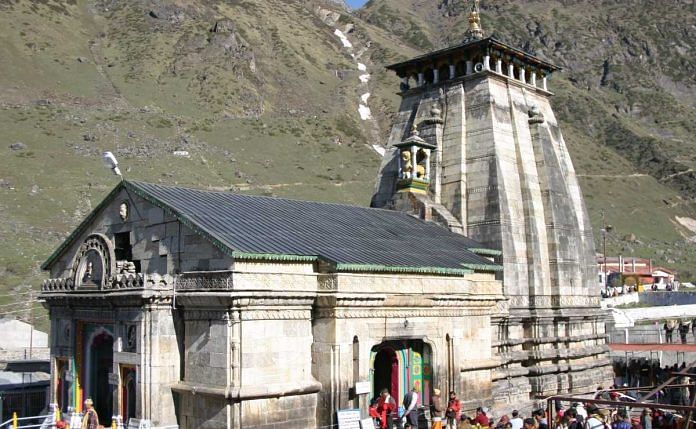Among all the hue and cry of repealing farm laws, another repealed law failed to catch popular imagination in India. The Uttarakhand government recently repealed Char Dham Act after much protest from the local community especially priests. Although the action has been undertaken keeping the upcoming elections in mind, it’s a welcome step.
The ‘Free Hindu temples’ movement, as many would believe, is neither a new struggle that germinated after 2014 nor is it a part of a communal agenda. In post-reform India where the State is liberalising much of its assets, companies and various sectors of economy, temples are still under its control. Just like the erstwhile Socialist countries controlled every little business under possession, about 40,000 temples are controlled in India, run and profoundly mismanaged by the ‘secular State’. Controlling Hindu temples is the perfect example of ‘license permit raj’ in the religious realm.
Asking for freedom of Hindu temples from State control is not a case against any community or faith but an attack on the hypocrisy of the secular Indian state. If the State is secular, it is expected that it is equidistant from all religions. But it’s an astonishing fact that the Indian Secular state controls only Hindu temples. Article 25 to Article 28 of the Constitution mentions the Right to Religion of every faith and directs the State to not interfere in religious matters unless there is conflict with other fundamental rights. Here, the State itself is guilty of abridging Fundamental Rights by controlling temples. Does interfering only in Hindu institutions imply that the State accepts its Hindu character? If yes, then embrace it fully. If not, it should free temples.
Also read: ‘Devotees cheated’, ‘against Sanatan Dharm’: Ayodhya’s Ram Mandir trusts don’t trust each other
Where there is a State, there is corruption. Then what makes us think that there won’t be any siphoning of funds by individuals ‘appointed ’ by the State? Most of the times the ‘appointed ’ trustee has no devout faith in the temple and its deity. He works there just as zamindars worked for the British. Gurudwaras, Waqf boards and churches have a procedure of ‘electing’ their own trustees, which also function as the management committee of that religious institution. But in temples, the trustees are appointed by the State.
There are multiple voices in media and civil society that oppose taking away the control of Hindu temples from the State. The principal reason for opposition is, who will take care of these huge ‘cash-generating’ institutions and what about its management? The second largest real-estate holder in India is the church. Why isn’t the State concerned about the mismanagement and corruption under such a huge religious institution? Second, the Indian democratic, secular State has existed since 1947 while most of the Hindu Temples are centuries old. The fact that they are still thriving is testimony of how they were managed by local devotees for decades. Some might argue that kings used to provide patronage to temples. Kings were devotees and the deity ‘prime god’ of that kingdom. So are they suggesting that Indian State is Hindu in its religious identity?
Of all the 40,000 temples controlled by the State, about 90 per cent have an annual income of less than Rs 10,000. It makes no sense to control such institutions. Temples are not only places of worship, but also serve as a medium of art, culture and socio-economic tradition. The magnificent architecture of some of temples speak of its grandeur and the skills of Indian sculptors.
A secular liberal State has no business interfering in any religious institution, let alone any place of worship. It’s more astonishing that the State discriminates against only one faith. Since the Indian State expects every citizen to be secular in public life, it should first imbibe the virtue, shed its hypocrisy and free Hindu temples.
The author is preparing for civil services at Dhule. Views are personal




